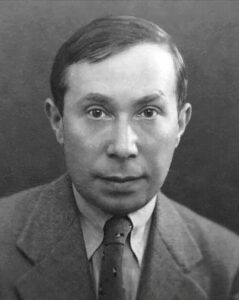Sobre Apología y Critón Strūthiō 020
Parte de:
«Sobre la Apología de Sócrates y el Critón de Platón» / I

Leōnardus Strūthiō (1899-1973)
ĒRVDĪTIŌRIBVS ***
Versiō hispānica Aemiliā Aquadītī auctrīce 20
Por lo tanto, Sócrates habla en segundo término de aquello que se deduce si la muerte es, por así decirlo, un alejarse de casa, de la propia gente, para ir a otro lugar donde, como se dijo, están todos los muertos; en ese caso, no habría un bien mayor que la muerte. En el Hades, uno encontraría en primer lugar a todos los semidioses que fueron justos durante su vida y, los primeros entre ellos, a los verdaderos jueces, (Minos, Radamantis, Éaco y Triptólemo); Sócrates no habla de los semidioses que fueron injustos durante su vida, ni de lo que les harán los verdaderos jueces, y menos aún de lo que estos harán a los hombres que actuaron injustamente en este mundo (como sus acusadores y quienes lo condenaron). En cambio, habla de otro gran don: en el Hades, uno podría estar junto a Orfeo, Museo, Hesíodo y Homero, otro grupo de cuatro, a quienes Adimanto cita o menciona juntos como maestros de injusticia (República, 364c5-365a3). Para Sócrates sería maravilloso encontrarse allí con Palamedes, Áyax el hijo de Telamón y otros antiguos, si los hay, que murieron a causa de un juicio injusto, y comparar su experiencia con las de ellos (Áyax se suicidó). Pero lo más importante es que uno podría pasar el tiempo en el examen y la búsqueda de quienes están allí, como de los que están aquí, para saber quién de ellos es sabio y quién cree ser sabio sin serlo; conversar con quien condujo el gran ejército contra Troya, o con Odiseo o Sísifo u otros mil, hombres y mujeres, estar junto a ellos y examinarlos, sería una felicidad inexpresable; es de presumir que quienes están allí no harían en modo alguno morir a nadie por este motivo, porque son más felices que quienes están aquí en los otros aspectos y, además, son en lo sucesivo inmortales, si las cosas que se dicen son ciertas. La vida en el Hades parece ser, entonces, feliz para todos, en especial para Sócrates, que seguirá allí con la vida que llevaba en Atenas y la mejorará sin temor a la pena capital y probablemente a ningún otro castigo. ¿Es malo morir, entonces? Si no es malo, Sócrates no será allí más feliz que aquí (cf. Político, 272b8-d12), a menos que el examen de Homero y sus héroes y heroínas acreciente la felicidad. Sócrates no había hablado de su examen de mujeres en Atenas.
Perge ad initium paginae huius
Leōnardī Strūthiōnis verba 20
Correspondingly Socrates speaks in the second place of what follows if death is, as it were, a going away from home, from one’s people, to another place where, according to what is said, all the dead are; in that case there would be no greater good than death. In Hades one would find in the first place all the half-gods who were just during their life and among them in the first place the true judges (Minos, Rhadamanthys, Aiakos and Triptolemos); Socrates does not speak of the half-gods who were unjust during their lives, nor of what the true judges will do to them and still less of what they will do to men who acted unjustly here (like his accusers and condemners). Instead he speaks of another great boon: in Hades one might come together with Orpheus, Mousaios, Hesiod and Homer—another group of four, the group whom Adeimantos quotes or mentions together as teachers of injustice (Republic, 364c5-365a3). For Socrates it would be wonderful to meet there Palamedes, Aias the son of Telamon and other ancients, if any, who died because of an unjust judgment and to compare his experiences with theirs (Aias committed suicide). But, most important, one could there spend one’s time examining and searching those there, as these here, as to who among them is wise and who believes himself to be wise without being so; to converse with, to be together with, and to examine the one who led the great army against Troy, or Odysseus or Sisyphos or a thousand others, men and women, would be unspeakable happiness; those there presumably do not kill one on this ground at any rate, for they are happier than the ones here in the other respects and in addition are henceforth immortal, if the things that are said are true. Life in Hades seems then to be happy for all, especially for Socrates who will continue there the life he led in Athens and improve on it without having to fear capital and probably any other punishment. Is dying then bad? If it is not bad, Socrates will not be happier there than he was here (cf. Statesman, 272b8-d2), unless the examination of Homer and his heroes and heroines increases happiness. Socrates had not spoken of his examining women in Athens.
Perge ad initium paginae huius
Iūra
El texto en lengua inglesa fue publicado de manera póstuma en un volumen en honor al prof. Jacob Klein: Essais in Honor of Jacob Klein (Annapolī, ē Typographeō Acadēmīae Sānctī Iōhannis MCMLXXVI). Aunque nosotros tomamos como base lo aparecido en una antología dedicada a escritos del prof. Strūthiō en inglés en 1983: Studies in Platonic Political Philosophy (Sicagī, ē Typographeō Ūniversitātis Sicagī MCMLXXXIII). La versión castellana es obra de Aemilia Aquadīs, aparecida en la traducción del volumen mencionado anteriormente (Bonāeropolī, ē Typographeō Amōrrortī MMVIII). La publicación de estos fragmentos promueve la difusión en castellano de la obra del profesor Leōnardus Strūthiō con fines académicos y de formación. Conminamos a visitar su biblioteca más cercana o adquirir el volumen físico en su librería de confianza.

Perge ad initium paginae huius
ĒRVDĪTIŌRIBVS ***
